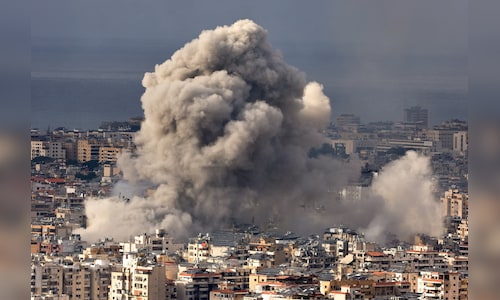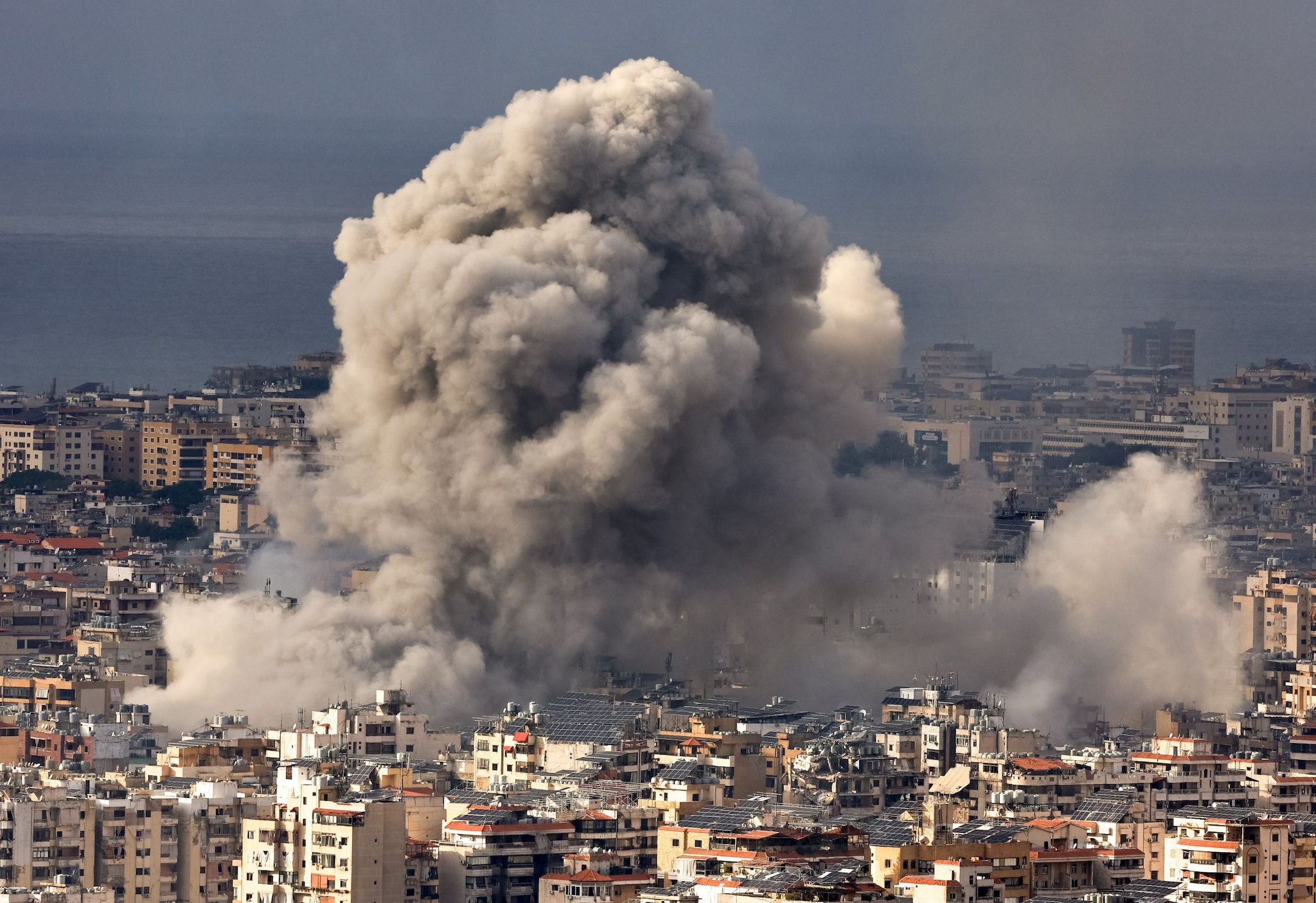

Under the truce, brokered by the United States and France, Israel is expected to withdraw its troops from the southern Lebanon border.
However, Israeli forces have been preventing displaced Lebanese civilians from returning to villages previously targeted in the conflict. Authorities have also issued warnings for civilians to avoid the border region despite some celebrations and returns in southern Lebanon.
The Lebanese army has urged residents of border villages to delay their return until Israeli forces have fully withdrawn from the area.
Meanwhile, Hezbollah declared victory over Israeli forces, stating that it would closely monitor the withdrawal and keep its fighters on high alert for any potential violations.
To explore the implications for the ongoing Middle East crisis, CNBC-TV18 engaged with Anju Gupta, a Strategic Affairs Expert, and Omair Anas, an Assistant Professor at AYBU Turkey.
Edited excerpts.
Q: What led to the ceasefire? This is historic in the sense it’s happening after many years. But even earlier, there was an agreement in 2006 for a ceasefire that was breached by the Israelis. What do you think has brought about this ceasefire today?
Gupta: This agreement is a US proposal supported by France, which has been made with governments of Lebanon and government of Israel. So there is no Hezbollah directly in this agreement. It’s very important to understand that there is no agreement with Hezbollah. The assumption here is that government of Lebanon has committed on behalf of Hezbollah, which is a state within the state. So having said that, this agreement is nothing but invoking UN Security Council Resolution 17O1, which was adopted in 2006. So basically it means that fighting will stop between the two side for only 60 days.
And in these 60 days, Hezbollah will withdraw, will move above Litani River in Southern Lebanon, and Israeli forces will move, move out of Lebanese territory, which is below the South of the Blue line within 60 days. So it’s not happening immediately. That is the understanding. That is what the finer print of this agreement says.
Now, why is it happening? We know that both the sides, Hezbollah and Israeli forces, they have been at war with each other since October 8 2023. Since September 2024, Israeli army had upped the ante whereby, they mounted very serious aerial bombing in Beirut and other areas. Hezbollah’s top leadership has suffered heavy losses. So Hezbollah has really suffered a lot. But Israeli forces have also suffered. They are fighting a multi front war, but they have suffered a lot after they started ground operations into Southern Lebanon on October 1 2024. So by October end Israeli media was reporting that there were 35 fatalities of Israeli forces and 900 soldiers had been injured. So the toll was too high. So there has been discomfort within Israeli forces that probably this was the time to review and not just continue with this combat against Hezbollah. So there was I would say willingness on both the sides because of the losses that both sides have suffered. So I think both the sides have said that they need time to regroup and rebuild. So let’s not lose sight of what both sides are saying.
Q: But both sides are already accusing each other of betraying the terms of the ceasefire. So things remain very fragile on the ground. Do you expect this ceasefire to continue? Do you think the agreement will be met?
Gupta: The ceasefire is only for 60 days, which means for 60 days they will not fire at each other. But we know that ceasefire violations have been made by both the sides, at least the accusations are. And it’s just been I think 2 days or maybe less. Now ceasefire will depend on Hezbollah and on Israel. It will not depend on anybody else. Yes, US will lead the monitoring mechanism of violations. But in such a short time, it looks unlikely that US will be able to enforce it through the good office of the Lebanese government. It looks unlikely. So it may last 60 days, it may last less. That’s how it looks at the moment.
Q: What’s the prospect of long term peace in this region? Do you expect what’s happened here in terms of a ceasefire can lead to some sort of ceasefire in Gaza as well?
Gupta: US side has expectations that because Hezbollah has been taken off the field, at least for now, it will bring more pressure on Hamas in terms of Israel not having to fight on one more front in the north and also demoralising effect on Hamas. That’s the expectation. So the US side believe that this is the right moment to push Hamas for a deal. It looks unlikely for a very simple reason that apart from what Hamas may be thinking or what Iran may be thinking as of now, the far right element within the Israeli government have a different vision of the day after in Gaza. They want to control Gaza, they want to control security of Gaza. While this may be completely unacceptable to the Palestinian and the entire Sunni Arab world and the lead players in this world who are advocating for a two state solution. So it looks difficult that the ceasefire with Gaza will happen anytime soon.
Q: Do you think the Biden administration has changed its stake on the war in the Middle East as President Biden completes his term? And how do you expect Donald Trump, when he is sworn in as President, to look at the situation in the Middle East? Where do you think we are going right now?
Anas: I should say that the Biden administration has completely failed to use the American influence both on the Arab partners as well as on Israel for many reasons, which were mostly about elections, in which, of course, the Democrats have failed. And now he is realising that maybe he could deliver something in concrete. However, I think the Trump administration will deliver a concrete road map for stability and peace in the region.
I have been for long arguing this point that Trump administration in his first term had proposed the Abraham Accord and he had had brought together all the Arab partners, especially Saudi Arabia and the United Arab Emirates and they had agreed on many details of the Abraham Accord. However, under the Biden administration as Israel was so much emboldened, the two partners who had agreed to the Abraham accord, they backed out from that. And they have now come back to the same position that without a two state solution, there is no progress. And so Saudi Arabia has clearly said that they cannot go ahead with normalisation process with Israel as long as Israel does not show its commitment to the two state solution.
So again, the Trump administration I think will use his influence over Israel to convince Israelis to deliver some sort of peaceful and sustainable mechanism for stability in the region. With Hamas or without Hamas, it doesn’t matter. But I think that Trump administration will have more influence on Israeli politics and politicians to bring peace and stability.
Watch the accompanying video for the entire discussion.



